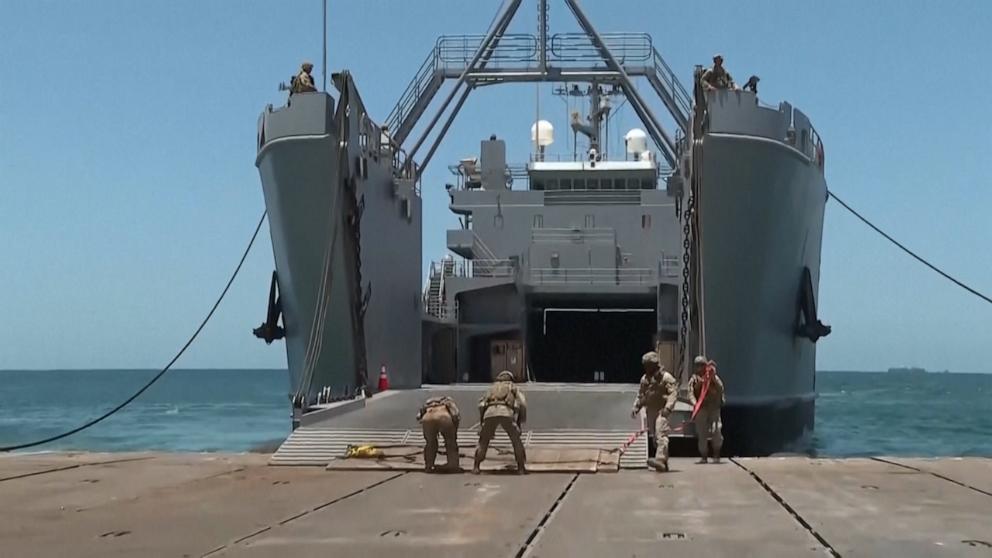Israel is targeting the military leader of Hamas in Gaza. Who is he and what does this mean for the war?

Israel claims it attempted to assassinate Mohammed Deif, the mysterious leader of Hamas’s military wing who has long been at the top of the country’s wanted list.
RAMALLAH, West Bank – Israel said Saturday it had attempted to assassinate Mohammed Deif, the mysterious leader of Hamas’s military wing who has long been at the top of the country’s most wanted list.
The attack took place in an Israeli-declared humanitarian zone in the southern Gaza Strip. At least 90 Palestinians were killed and nearly 300 others injured, according to local health authorities.
Israeli Prime Minister Benjamin Netanyahu said it was “still not absolutely certain” whether Deif and another target of the attack, Rafa Salama, were killed. He also said at a press conference that the entire Hamas leadership was sentenced to death.
Here’s a closer look at Hamas’ elusive military leader and what his death might mean for the course of the war.
Who is Mohammed Deif?
Deif was one of the founders of Hamas’ military wing, the Qassam Brigades, in the 1990s and led the unit for over 20 years. Israel has identified him and Hamas’ Gaza leader Yahya Sinwar as the main perpetrators of the October 7 attack that killed around 1,200 people in southern Israel and sparked the war between Israel and Hamas.
Deif has been at the top of Israel’s wanted list for years. He is believed to be paralyzed after surviving several Israeli assassination attempts. He has not been seen in public for years and only a handful of photos of him can be found online. On the morning of October 7, Hamas released a rare voice recording of Deif announcing Operation Al Aqsa Flood.
Like Sinwar, Deif was born in the Khan Younis refugee camp in southern Gaza City in the early 1960s and is believed to have joined Hamas shortly after the founding of this Islamist Palestinian group in the late 1980s.
In 1989, at the height of the first Palestinian intifada or uprising, Deif was arrested by Israel but later released.
Deif was promoted to head of the Qassam Brigades in 2002 after his predecessor was killed by Israel. He is said to have helped expand Hamas’ labyrinth of tunnels under Gaza. Israel blames him for planning attacks that killed numerous Israeli civilians, including suicide bombings.
Deif is so elusive that even his appearance and health are the subject of speculation: some media reports say he has been confined to a wheelchair for years after injuries sustained in previous assassination attempts, while others say he can walk unaided. His name, Deif, means “the guest” in Arabic, an attribution that supposedly reflects his tendency to frequently change location to hide from Israel.
The International Criminal Court’s chief prosecutor announced in May that he was calling for the arrest of Deif and Sinwar, as well as exiled Hamas supreme leader Ismail Haniyeh. Prosecutor Karim Khan said he was also calling for the arrest of Netanyahu and Israeli Defense Minister Yoav Gallant.
What does this mean for the war and the negotiations?
The killing of Deif would be the most serious assassination of a Hamas leader by Israel since the war began and would be both a major victory for Israel and a severe psychological blow to the militant group.
At a press conference on Saturday evening, Netanyahu said all Hamas leaders were “sentenced to death.” He said increasing pressure on the group by killing its leaders would bring Hamas closer to a ceasefire.
Killing Deif could also help Netanyahu move closer to a deal. The Israeli president has said he will not end the war until Israel achieves its war aims, which include destroying Hamas’ military capabilities.
But Deif’s killing could also jeopardize ongoing ceasefire talks, which have apparently made tentative progress in recent weeks, and would likely deepen the rift between Hamas and the Israeli delegation in Cairo.
“For the Israelis, it could mean the sense of achievement they have been desperately chasing for nine months,” said Khaled el-Gindy, an analyst specializing in Palestinian affairs at the Middle East Institute in Washington.
But el-Gindy believes that this will also exacerbate Hamas’s position.
“In this context, accepting a ceasefire would be tantamount to surrender,” he said.
___
For more AP coverage, visit https://apnews.com/hub/israel-hamas-war.

)

